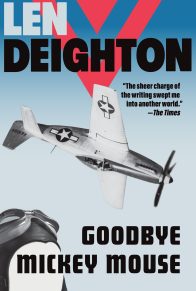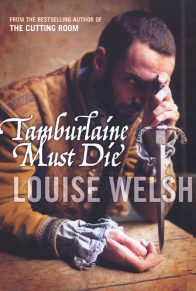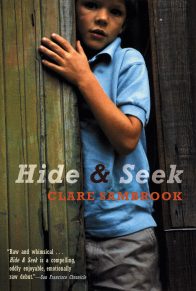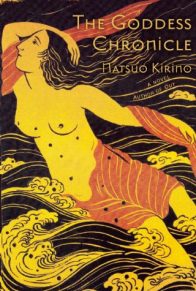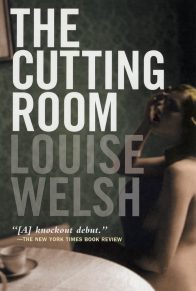“Delivers both the erotic tingle and the frisson of revulsion some of us feel when exploring a decadent subculture. . . . A few things that make Welsh one of the most exciting new writers in the genre: a gorgeous style that can even capture the surreal beauty of a sleazy club on the bad side of town; a protagonist who maintains a certain innocence as he pursues the more unsavory aspects of his trade; and genuine sympathy for the lost souls who have stumbled into an underworld of vice and can’t find their way home.” —Marilyn Stasio, New York Times Book Review
“Very much a thriller . . . The beauty is in Welsh’s ability to construct a setting with spare, understated prose—a hardboiled patter successfully transplanted from Raymond Chandler’s Los Angeles. . . . The Bullet Trick has a second-act accelerando that Scott Turow would envy. It’s a slam-dunk for the thinking reader’s beach bag.” —Marrit Ingman, Austin Chronicle
“Explores the troubling overlap between entertainment and violence—particularly that toward women . . . Welsh’s style is terse and colloquial, her prose salted with Glaswegian slang. . . . Welsh also practices the art of misdirection, coaxing the reader to think he has guessed the final plot twist, when in fact she has another up her sleeve. Ultimately this book satisfies like a well-executed magic trick, one that, for this reader at least, offered the thrill of surprise.” —Helena Echlin, San Francisco Chronicle
“The word ‘bravura’ seems to have been coined for Louise Welsh. . . . Energy and crackling writing talent . . . Welsh is a literary escape artist of the highest rank.” —Dick Adler, Chicago Tribune
“Does such a good job of evoking the seedy eroticism of Berlin’s cabaret underworld that it’s hard to remember that we aren’t in prewar Germany.” —P.G. Koch, The Houston Chronicle
“[An] irresistible mystery. . . . Readers will keep turning pages to find out what went down in Berlin that destroyed his will to live, what fallout will catch up with William from the London debacle, and whether he will pull himself together to perform again. . . . Great fun. Welsh has a flair for language, a knack for capturing the seediest and sexiest of hotspots, and a convincing male perspective.” —Evelyn Beck, Library Journal
“Author Louise Welsh writes a compelling murder mystery.” —Michael Leonard, Curled Up With A Good Book
“Welsh nails the dialogue perfectly.” —Publishers Weekly
“Welsh . . . is a mistress of misdirection and the plot resembles a hall of mirrors.” —ABC Books (UK)
Praise for Louise Welsh:
“The Cutting Room fixes itself among a formidable modern pantheon that includes the novels of Ian McEwan and A. L. Kennedy, films like Trainspotting and the nihilistic comedy of The Office.” —Los Angeles Times Book Review
“Louise Welsh introduces some inventive riders to the . . . law(s) of detective fiction. She isolates her protagonist from the main run of sexual intrigue not by celibacy but rather by preference—he is a gay auction house dealer.” —The Washington Post
“The Cutting Room is a remarkable first novel . . . [a] less confident writer might have toned down the foreboding. . . . Welsh heightens it instead, to fantastically gothic effect. It is a rare opportunity to see an accomplished talent in action.” —The New York Times Book Review
“Every line of Tamburlaine Must Die is informed by a thorough grasp of not only the day-to-day of Marlowe’s life but also a sympathetic willingness to imagine the in-between.” —The Nation
“Tamburlaine Must Die . . . [is] a hard, sharp little rapier of a thriller/mystery that packs a punishing schedule of sex, violence, wheeling and double-dealing into its brief length. The tension is unabated throughout this frantic, seventy-two-hour dash among backstabbers, spies, murderers and prostitutes. . . . Welsh doesn’t waste a word.” —Publishers Weekly





